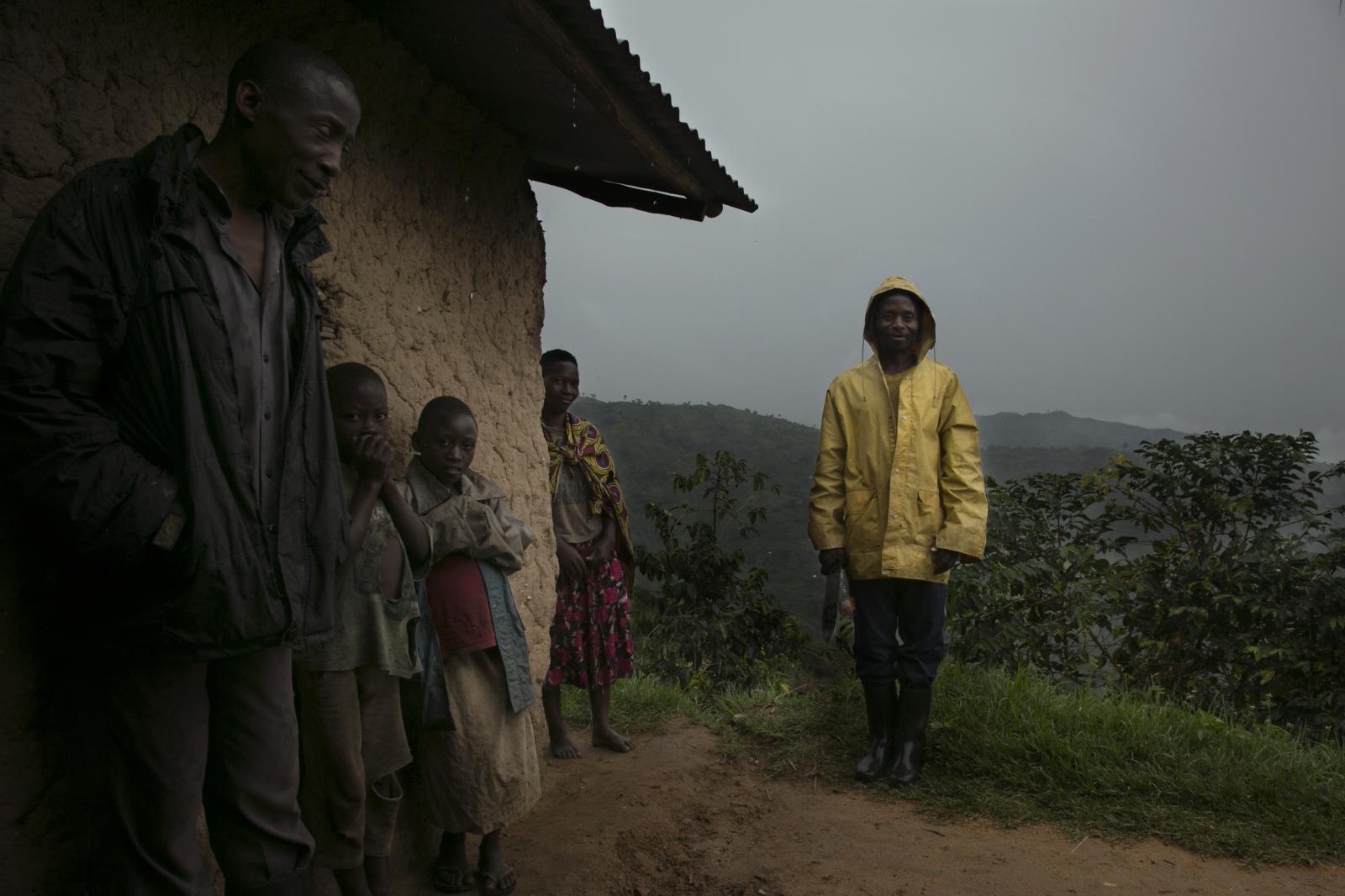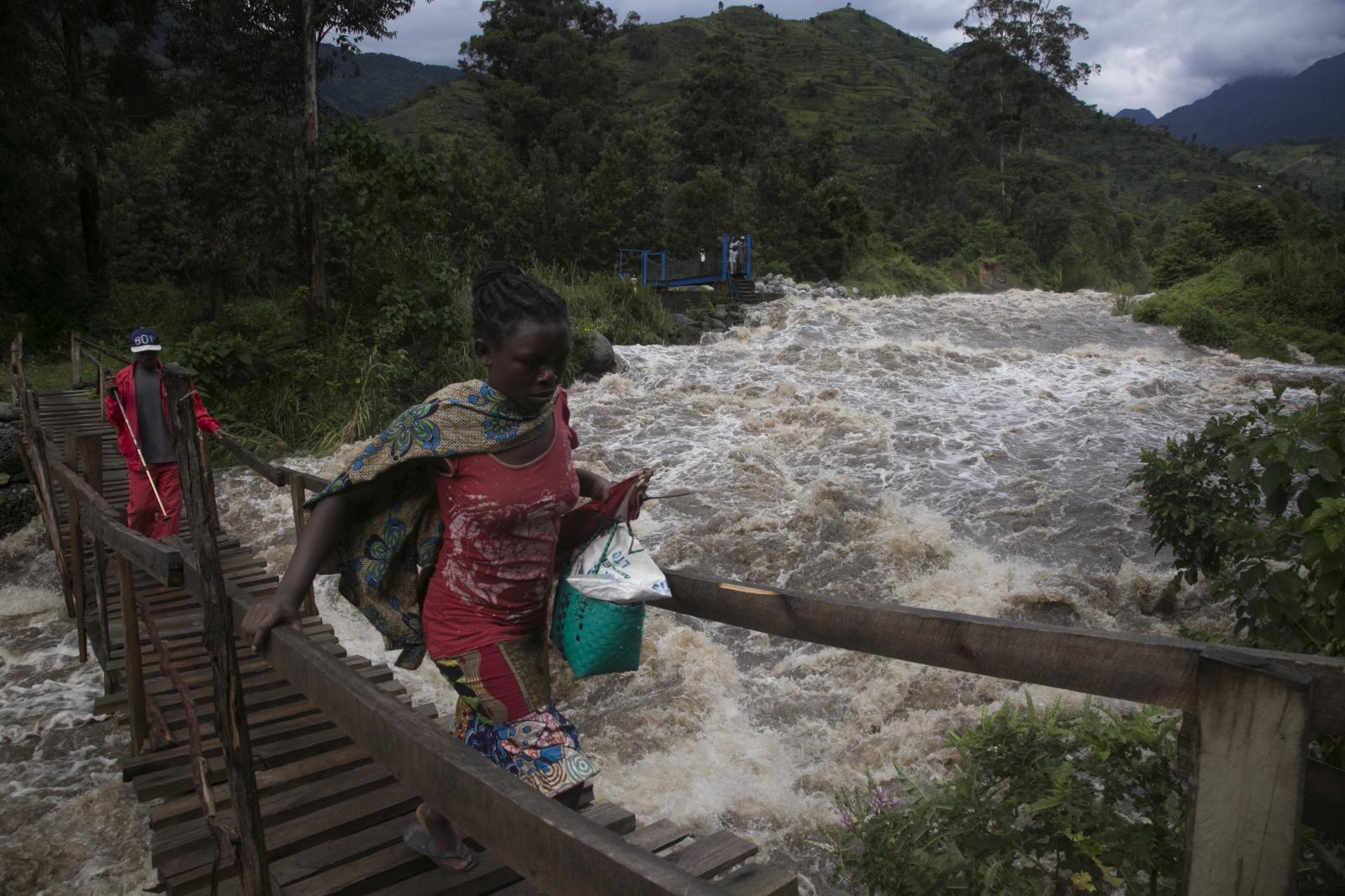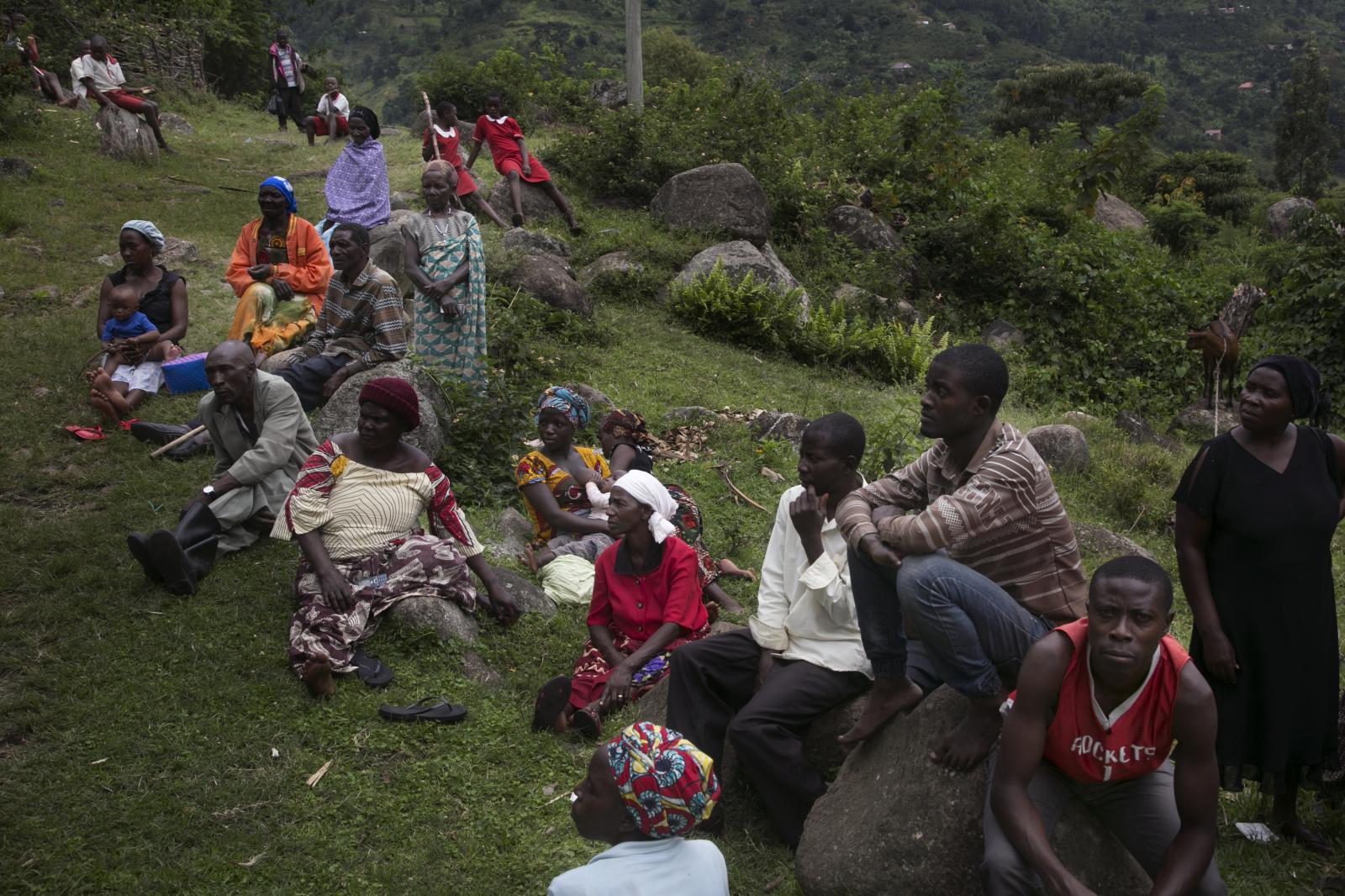Public Project
The Mountains Are Melting
Uganda contributes less than .07% of the world’s annual greenhouse gas emissions and the people who live in the remote villages in the Rwenzori Mountains are a marginal fraction of that, and climate change has become an everyday fact of life. Data is thin in western Uganda, but studies suggest that temperatures are an average of .2 to .3 degrees Celsius warmer, that the Rwenzori glaciers have receded 90% since 1906, and that the rainy season is a couple weeks shorter as a whole but that most storms are more intense than ever. In Kilembe, this has led to frequent flooding that wash out houses and landslides that slough off crops and precious topsoil. When the storms clear, the new rainfall patterns mean that crops won’t grow and the pools of water that are left behind help mosquitos carry malaria to new heights. Additionally, the Bakonzo people, traditional residents of Kilembe and the mountains, have deep spiritual ties to the glaciers and so there are spiritual ramifications as they recede.
Others have trekked into the high mountains to photograph the glaciers. I traveled to the Rwenzoris to give the people a chance to share their stories.
When it poured over night and the Mubuku River washed away homes in the foothills, I followed chief tktkt on a tour of flooded fields and crops that would never be harvested. When I arrived in Kilembe, a group with dozens of survivors of a 2013 flood met me to tell the stories of their family members who had not escaped the torrent of rocks and mud that destroyed the town. And, high on a ridge, in a hut that William Bahia led me to, I met an elder, Mbusa Birina Wanzabalere, who told me how it used to snow in the jungle around his house and how he was worried for his grandchildren’s future.
2,930















